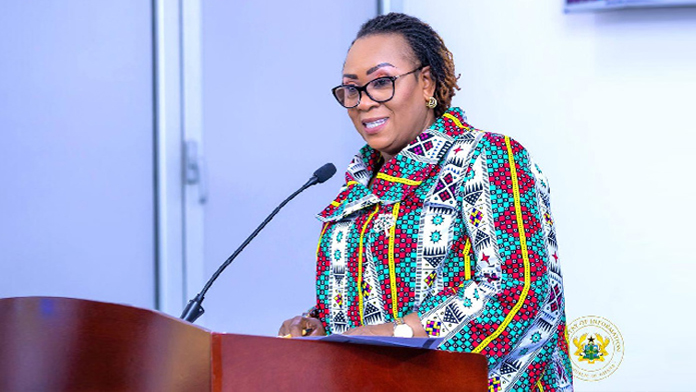Exclusive content

The Minister of Fisheries and Aquaculture Development of Ghana, Mrs Mavis Hawa Koomson, has actively sought investment from Moroccan entrepreneurs, urging them to explore the myriad opportunities available in Ghana’s fisheries and aquaculture sector. This appeal was made during her meeting with the Moroccan Minister for Agriculture, Marine Fisheries, Rural Development, and Forests, Prof. Mohammed Sadiki, on the sidelines of the 2nd High-Level Conference on the Blue Belt Initiative in Morocco.
Mrs Koomson highlighted various investment prospects within the fisheries and aquaculture value chain in Ghana. She emphasized the potential in establishing fishing net production facilities, manufacturing and supplying fiber canoes to replace traditional wooden ones in the artisanal and semi-industrial fishing sub-sectors, and creating state-of-the-art hatchery facilities for fingerlings production.
Furthermore, the Minister identified lucrative opportunities in the establishment of commercial aquaculture production facilities, including shrimp farming and mariculture. She also encouraged investors to consider ventures in fish feed production plants, fish processing, and cold storage facilities. These initiatives aim to enhance value addition and reduce post-harvest losses in the industry.
Expressing gratitude for the support provided by the Moroccan government under the ATLAFCO Convention, Mrs Koomson pledged Ghana’s ongoing commitment to participating in the implementation of ATLAFCO programs.
In a related development, Mrs Koomson delivered a statement during the 2nd High-Level Conference on the Blue Belt Initiative, addressing the challenges faced by the fisheries sector. She highlighted issues such as the threat of Illegal, Unreported, and Unregulated (IUU) fishing practices, sea and ocean pollution, and the destruction of marine habitats.
To counter these challenges, Mrs Koomson revealed that the Ghanaian government approved a new Fisheries and Aquaculture Policy in October 2022. The policy focuses on areas such as climate change, the Blue Growth Initiative, and the Blue Economy, sustainable aquaculture development, and infrastructure development.
Mrs Koomson expressed optimism that Ghana’s fish supply and demand gap could be bridged through the development of sustainable aquaculture. The government’s commitment to implementing comprehensive policies underscores its dedication to addressing the pressing issues faced by the fisheries and aquaculture sector, ensuring a more sustainable and prosperous future for the industry.